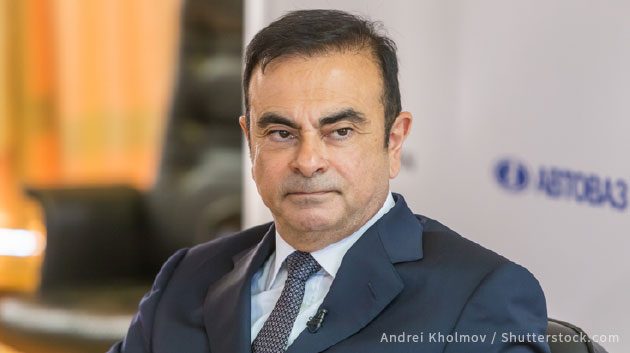A Former Nissan Chairman’s Underreported Income
Was Ghosn's Arrest Just?
(Andrei Kholmov / Shutterstock.com)
The massive amount of attention that Nissan Motor Corporation Chairman Carlos Ghosn attracted after his arrest enlarged evil and made Japan’s recruiting incident seem like a past event.
By understating his compensation, Mr. Ghosn violated Japan’s Financial Instruments and Exchange Act and was arrested by the Tokyo District Public Prosecutor’s Office in December.
From March 2010, Japan has compelled the public disclosure of the names and income of those receiving 100 million yen or more from publicly listed companies.
To avoid criticism of his high remuneration, Mr. Ghosn created a memorandum under which he would receive 1 billion yen of his annual salary of 2 billion yen after his retirement. Then he only disclosed annual income of about 1 billion yen on his annual securities report.
There are also suspicions that he had his overseas subsidiaries buy and provide luxurious homes.
Elites Should Receive High Salaries
Although an annual income of 2 billion yen may seem high in comparison to other Japanese executives, it is the same level that executives in America receive. For example, the CEO of General Motors receives approximately 2.5 billion yen annually.
The most elite sports people receive high incomes as well, with tennis player Kei Nishikori receiving approximately 3.8 billion yen per year, and baseball player Masahiro Tanaka receiving approximately 2.5 billion yen.
Japan tends to prefer a smaller gap between the salaries of elites and those of non-elites, but it is fair for top-class businessmen to receive high salaries that reflect the value of their work.
Was Mr. Ghosn finished With his job?
Meanwhile, there is a possibility that Mr. Ghosn had already finished his duties to Nissan.
Originally, Nissan was in a bankruptcy crisis due to an overpowering labor union. Renault of France then stepped in and proposed a capital tie-up with Nissan.
Mr. Ghosn assumed the position of Nissan COO after succeeding with rebuilding Renault in 1999. As COO, Mr. Ghosn implemented a rigorous cost cutting regime by overcoming the demands of the labor union and achieving a v-shaped recovery.
From 2005, Mr. Ghosn assumed the role of CEO of both Nissan and Renault. While Mr. Ghosn focused on the centralization of authority and the expansion of his companies, his involvement in Nissan reduced and he was not able to pay enough attention to its business.
Renault is partially a state-owned company and is supported by the French government. Its business efficiency was inadequate, and it was unable to produce popular car models. By acquiring technology from Nissan, it was able to improve its performance.
The French government and Renault wanted to integrate the management of Nissan and Renault; Mr. Ghosn was progressing with this agenda as well.
Nissan stated that it was fine with a capital tie-up, but not unification, as it wanted to retain its independence. It felt alarmed by Renault’s intention, and is said to have pursued prosecution of Mr Ghosn to prevent this.
After Mr. Ghosn achieved the primary objective of the recovery of Nissan, criticism toward him built up and his salary may have seemed unusually high.
The Problem With his Resignation
However, it is questionable whether prosecution was necessary. There was an option for the board of directors to dismiss Mr. Ghosn and his managers from their positions. In reality, they made the media put out inflated news about Ghosn’s arrest and encouraged public contempt prior to his resignation.
It is also unusual for prosecutors to arrest someone on charges of understatement of remuneration as the law is mostly applied to high value fraudulent accounts. Prosecutors may not even censor these. Even in 2015, when it was revealed that Toshiba padded 200 billion yen in benefits, the prosecutor didn’t act and management was not arrested.
Mr. Ghosn’s arrest and detention by Japan’s judiciary for a such a minor “crime” may have seemed abnormal to people from foreign countries. It is even possible that foreign management will avoid working in Japan in the future.
The responses to this situation by Nissan and the prosecutors have damaged the “capitalism mindset” in which people who achieve large success earn remuneration that reflects their achievements.



















